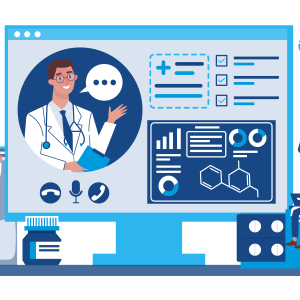Mobile medical services have revolutionized healthcare delivery by providing convenient access to medical resources and services. However, concerns about the security of patient data persist in the realm of mobile healthcare. While these DocGo services offer numerous benefits, such as remote consultations, real-time monitoring, and access to health records, ensuring the confidentiality, integrity, and availability of patient data remains paramount.
Healthcare providers like DocGo must implement robust security measures to protect patient confidentiality and prevent unauthorized access to sensitive information. By prioritizing data security and implementing best practices, mobile medical services can continue to improve patient care while safeguarding patient privacy.
Security Risks:
Data Breaches: Mobile medical apps and devices are susceptible to hacking and data breaches. Attackers may exploit vulnerabilities in the software or intercept data transmissions to gain unauthorized access to sensitive patient information.
Device Theft or Loss: Mobile devices used by healthcare providers for accessing patient data are prone to theft or loss. If these devices are not properly secured or encrypted, the patient data stored on them could be compromised.
Unauthorized Access: Unauthorized access to patient data can occur if healthcare professionals fail to implement strong authentication mechanisms or if they share login credentials. This can lead to the exposure of sensitive information to unauthorized individuals.
Malware and Ransomware: Mobile devices and apps can be infected with malware or ransomware, which can compromise patient data or render devices unusable. Attackers may exploit vulnerabilities in the software or trick users into downloading malicious applications.
Lack of Encryption: Patient data transmitted over mobile networks may be intercepted by attackers if proper encryption measures are not in place. Without encryption, sensitive information such as medical records, test results, and personal identifiers could be intercepted and exploited.
Security Measures:
Encryption: Implementing end-to-end encryption for data transmission and storage helps protect patient data from unauthorized access. Encryption algorithms ensure that data is securely transmitted and stored, reducing the risk of interception or tampering.

Authentication: Implementing strong authentication mechanisms, such as biometric authentication or multi-factor authentication, helps verify the identity of users and prevents unauthorized access to patient data.
Secure Development Practices: Healthcare providers and developers should follow secure coding practices and regularly update their software to address known vulnerabilities. Conducting regular security audits and penetration testing can help identify and mitigate potential security risks.
Data Access Controls: Implementing role-based access controls ensures that only authorized individuals have access to patient data. Healthcare providers should limit access to sensitive information based on the principle of least privilege to minimize the risk of unauthorized access.
Device Management: Implementing mobile device management (MDM) solutions helps secure mobile devices used for healthcare delivery. MDM solutions enable remote tracking, locking, and wiping of lost or stolen devices, reducing the risk of data breaches.





